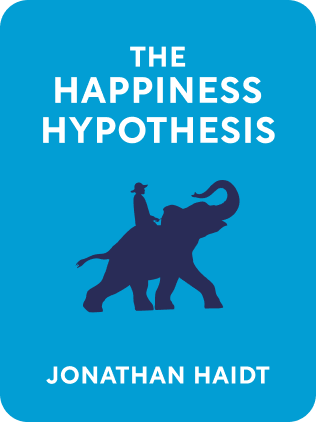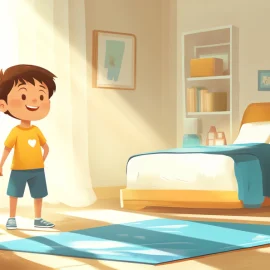

This article is an excerpt from the Shortform book guide to "The Happiness Hypothesis" by Jonathan Haidt. Shortform has the world's best summaries and analyses of books you should be reading.
Like this article? Sign up for a free trial here .
What is the difference between conspicuous and inconspicuous consumption? Why are we happy making less money as long as it’s more than our peers?
Inconspicuous consumption is when we spend money for our own benefit, such as on a vacation, while conspicuous consumption is when we buy materialistic things to demonstrate our wealth. Inconspicuous consumption will bring you more long-term happiness that is absolute, rather than relative happiness.
Keep reading to learn why we should only be focusing on inconspicuous consumption.
What Is Conspicuous and Inconspicuous Consumption?
One effective way you can boost your happiness through striving for the right things is by shifting from conspicuous consumption to inconspicuous consumption.
Conspicuous consumption is when we buy visible, materialistic things for the purpose of demonstrating our wealth, prestige, or status to others. Examples would include things like a sports car or a piece of fancy jewelry. These aren’t things we buy for their intrinsic value; they’re things we buy for what they’re supposed to project about us to others.
Conspicuous consumption naturally leads to an endless competitive cycle—in response to your purchase, someone else buys something even more expensive, leaving you dissatisfied because it devalues your own purchase. The only way you can regain that happiness, of course, is by purchasing your next big-ticket item.
Relative Happiness
Closely related to the ideas of conspicuous and inconspicuous consumption is the way in which we tend to value relative happiness more than absolute happiness. We are willing to accept less overall happiness, as long as we know we have more than others. One study showed that most subjects preferred a job in which they earned $90,000 and their coworkers earned $70,000 to one in which they earned $100,000 but their coworkers earned $150,000. That is, they were willing to accept less money as long as they knew they would be making more than their peers. The added social prestige was worth at least $10,000 to these subjects.
Inconspicuous consumption, by contrast, refers to the kind of spending we do for our benefit, on things that make us intrinsically happy. These are things that we value for their own sake, not for what they convey about us relative to other people. Positive psychology research suggests that money spent on experiences like vacations is far less likely to fall into the conspicuous consumption trap than money spent on material objects like cars or expensive watches. People tend to compete with one another over who owns the biggest house or the nicest car; they don’t, however, try to one-up each other with who took the longest vacation or who traveled the furthest.
Why do we treat experiences so differently than objects? Because experiences tend to bring us into contact with other people. We forge deeper connections with others through enjoying them together.
Happiness Within and Without
In ancient times, when societies could be unstable and war or plague could threaten one’s existence at any moment, these ideas about abandoning attempts to control the circumstances around oneself made sense—you really did have substantially less control over what happened to you.
But this is less the case in modern societies, especially wealthy and democratic ones. In the industrialized world in the 21st century, we do have the ability to make plans, formulate goals, and achieve them. And, as we’ve seen, if you choose the right ones, you can find meaningful and lasting happiness through inconspicuous consumption.
Embracing, in moderation, the pleasures of life and forging meaningful attachments is a key part of what it is to be human. Happiness can come from within, but it also comes from without.

———End of Preview———
Like what you just read? Read the rest of the world's best book summary and analysis of Jonathan Haidt's "The Happiness Hypothesis" at Shortform .
Here's what you'll find in our full The Happiness Hypothesis summary :
- How your emotions determine how satisfied you are in life
- Why you need to struggle in order to succeed
- How to create your own happiness






